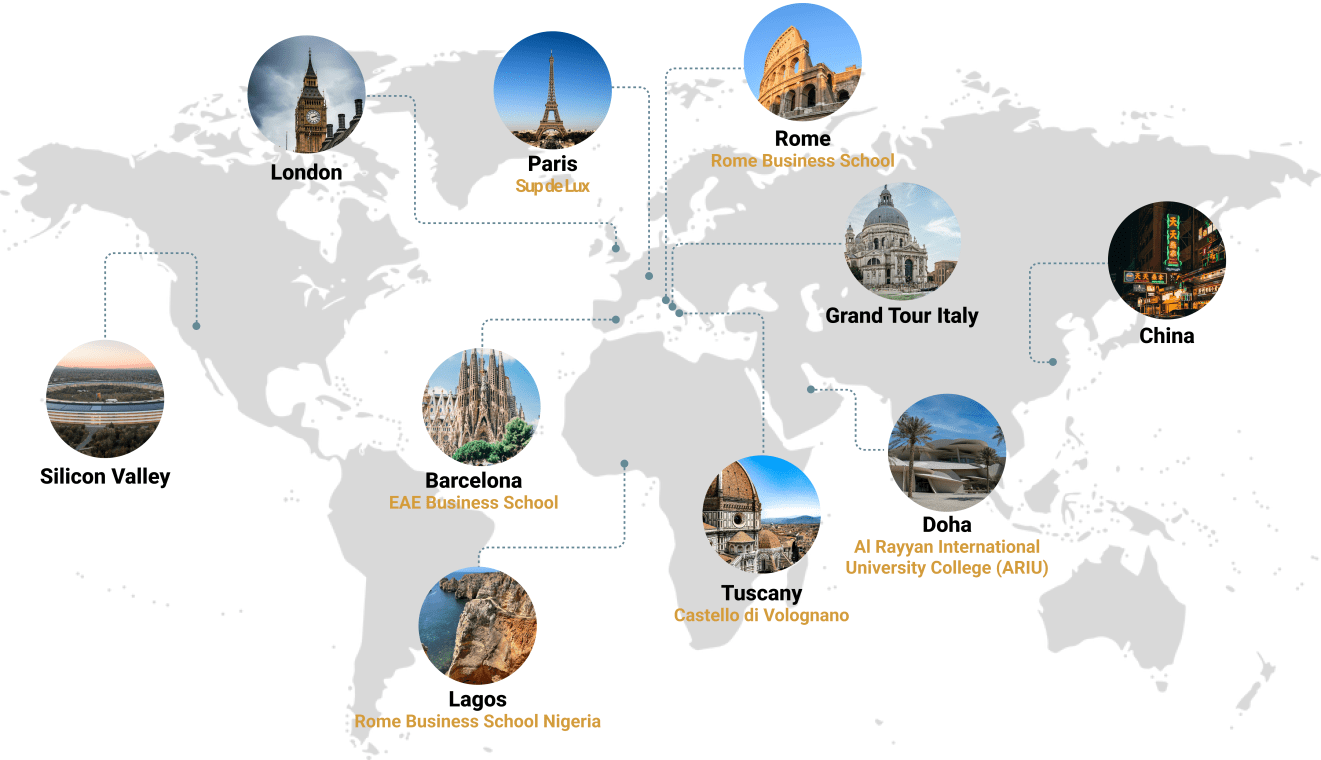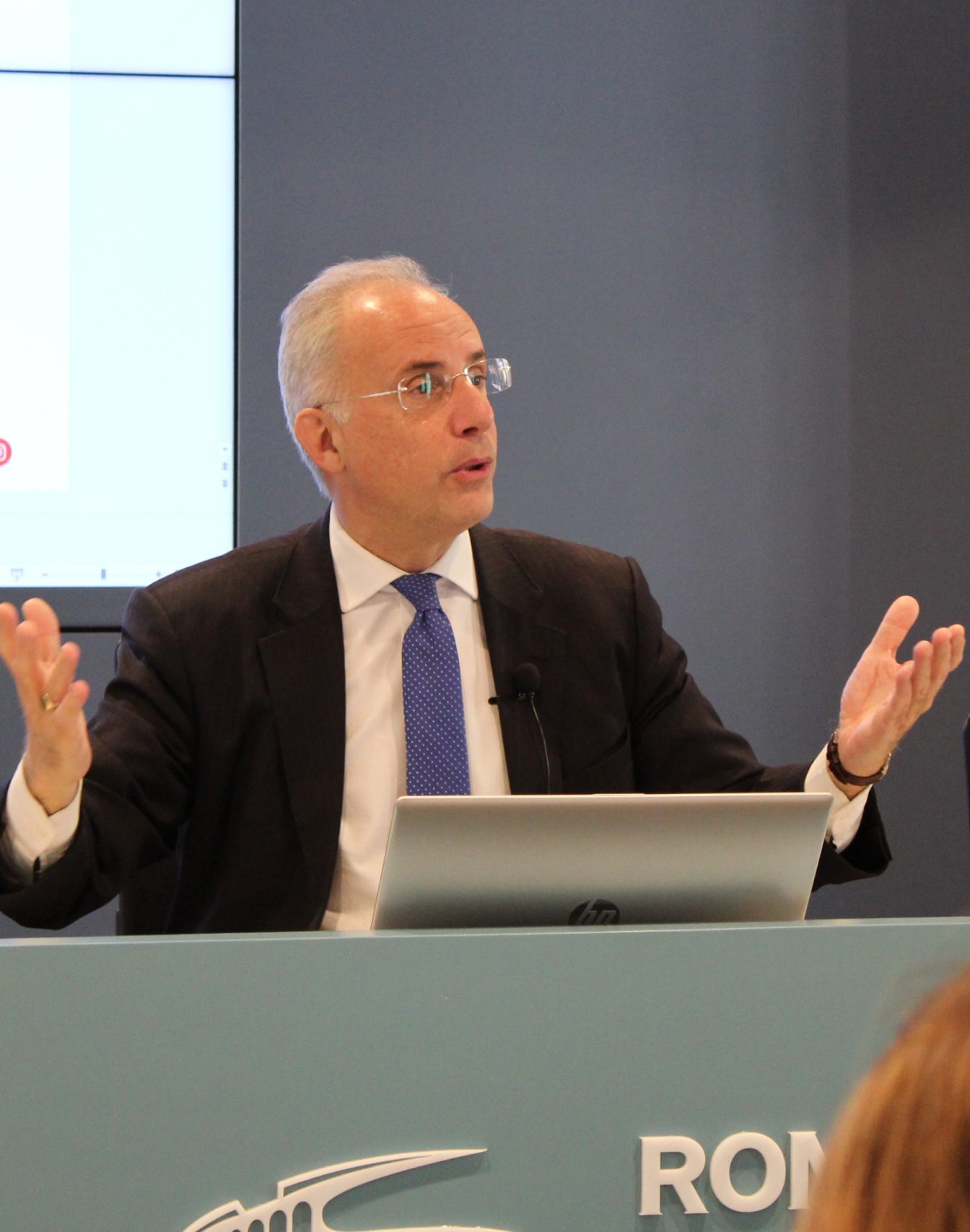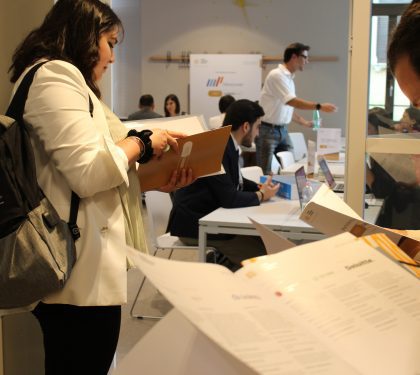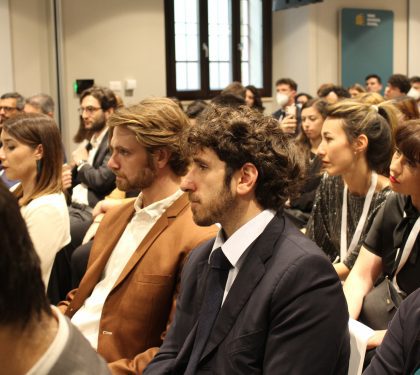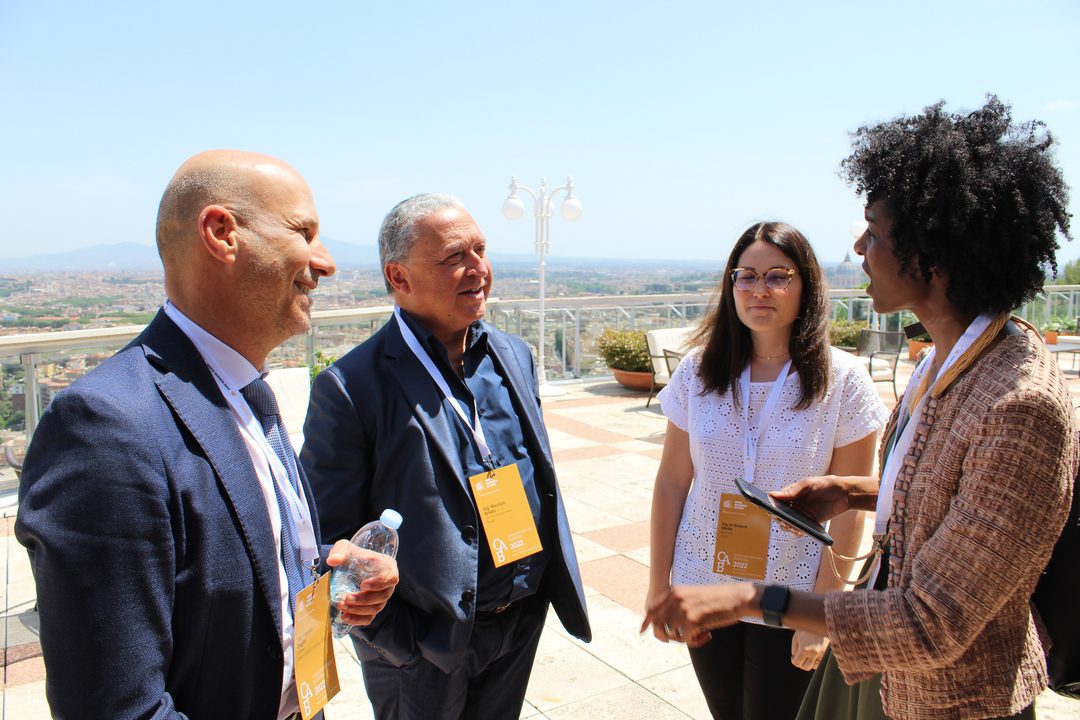During the first module of the MBA, students will acquire core management skills to enhance your professional career.
Students in this module will have the opportunity to learn about:
- Business Government and Global Economy: the aim of this module is to analyze the key factors that affect the competitive position of a nation by investigating the economic forces that drive trade integration and how globalization is changing the macroeconomic scenario
- Strategic Management and Competitive Strategies: This module will show students how a business views itself in its ‘totality’ and in the context of its environment. The module will be taught from the perspective of a manager or chief executive officer and will enable students to create competitive strategies.
- Project and Operations Management: this module aims to provide participants with those concepts and tools whilst both covering the basics of traditional PM and familiarizing students with the most recently invented approaches to PM and operations.
- Global Marketing Management: after attending the lecture and studying, students should be able to demonstrate an understanding of major issues and be able to give solutions related to international marketing management, apply skills in researching and analyzing trends in global markets and in modern marketing practices
- Digital Marketing and Metrics: the digital marketing & metrics module focuses on two topics: the techniques and tools necessary to reach customers through digital channels such as email and social media; and Marketing Metrics and Key Performance Indicators (KPI’s), measurable values that are used by marketing teams to demonstrate the effectiveness of campaigns across all marketing channels.
- Accounting and Budgeting: this module will define key terms such as ROI, EBIT, and GAAP. It will also provide an understanding of financial statements, budgets, forecasting techniques, purchasing decisions, and laws that regulate the handling and dissemination of financial information.
During the second module of the International MBA, students will learn:
- Entrepreneurial Business Plan: The focus of this module lies in understanding how entrepreneurs create economic and social value by tapping into new opportunities. The module explores entrepreneurial approaches employed by corporation managers when confronted with complex problems and emerging opportunity situations.
- People and Talent Management: this module is designed to help students understand how digitalization impacts HR Management, how HR as a function can become more digital and how HR can help drive business outcomes in a digital age.
- Financial Management: this module will give students the opportunity to analyze financial statements and interpret financial information, produce financial reports, assess financial risk and develop risk-reduction strategies, manage budgets and cash flow, and predict future financial trends.
- Operations and Performance Management: This module provides the knowledge and methodology to enable participants to understand the nature and importance of supply chain management, operations and performance management and how – by managing the flow of products, information and supply networks – companies can satisfy the needs of their customers.
- Managerial Data Science and Business Analytics: students will gain practical hands-on experience with statistics programming languages and big data tools through coursework and applied research experiences.
During the third module of the MBA, students will learn:
- Global Business Immersion and Leadership: This module is designed to increase the awareness of culture and how communication styles impact global business and leadership. Students will learn about the advanced communication skills needed to lead colleagues in a global context, and they will learn how to expand a business internationally to carry out cross-cultural management.
- The Future of Business and Disruptive Innovation: this module covers the future of businesses and the meaning and implications of disruptive innovation, with a special focus on new technologies, virtual reality, design thinking and the impact of disruptive innovation.
The mission of Rome Business School is to prepare future managers, entrepreneurs, and professionals to capitalize on the benefits of digitalization, go global, and make a positive impact on society.
Electives are excellent tools for students to boost their employability by focusing on in-demand skills.
- Electives help students carve out their own niche and become more competitive.
- Electives expose students to courses they might not have otherwise encountered.
- Electives offer a unique curriculum that fosters life and career skills.
- Electives are divided in 5 main area of interest: Innovation and Growt, Tech and Digitalization, Industry- Focused, International Business, Global Electives with RBS School partners.
Students will immerse themselves in 10 hours of hands-on workshop, where theoretical concepts will be put into practice and learning will occur through experience.
In partnership with Coca-Cola HBC Italia
<img class=”alignnone size-medium wp-image-55859″ src=”https://pre.romebusinessschool.com/wp-content/uploads/2022/07/Coca-Cola_Logo-6-300×146.png” alt=”” width=”300″ height=”146″ />
Business Simulations are innovative and engaging managerial tools, which allow to reproduce the dynamics and logic of a business.
Students face a common competitive situation, stimulating and boosting their managerial, decision-making and relational skills.
Each team (from 3 to 5 students) leads a virtual company, implementing a competitive strategy with the aim to maximize the market value of their company.
The Business Simulation is composed of a number of rounds (3 to 6): each round simulates six months of operability of the company on the market.
The consistency between decisions and available resources, strategic planning, analysis of results and evaluation of competitors are the key elements that determine the winning team.
You will have the chance to showcase your skills at the end of your educational experience by taking on a genuine business challenge. Make use of your skills to spot opportunities and create a strategy that is genuinely innovative.
Take on a real business challenge. You can work in a small group to develop a marketing strategy for a new company, a plan to boost online sales, or a loyalty programme tailored to different generations.
Two case studies from two different businesses will be given to you to put your master’s course knowledge to the test.
Previous years’ experiences
The Practical Challenge:
Create a Market analysis of organic fertilizers in Africa, by areas: players/competitors, market size and trends, market differentiation and positioning.
![]()

The Global Trends lab consists of 2 virtual sessions:
Session 1: How to Find Sources to identify global trends. Deep dive into the global world trends shaping the world of today – guest speakers from UN, UNIDO, ILO. Examples of Global Trends:
- The Future of Work
- AI, Blockchain, and Technology
- The World in 2030 – Future Scenarios (UN, IMF, ECB)
Session 2: Understand the impact of global trends on businesses, and explore ways in which businesses can adapt and transform based on future trends and forward-thinking strategies.









